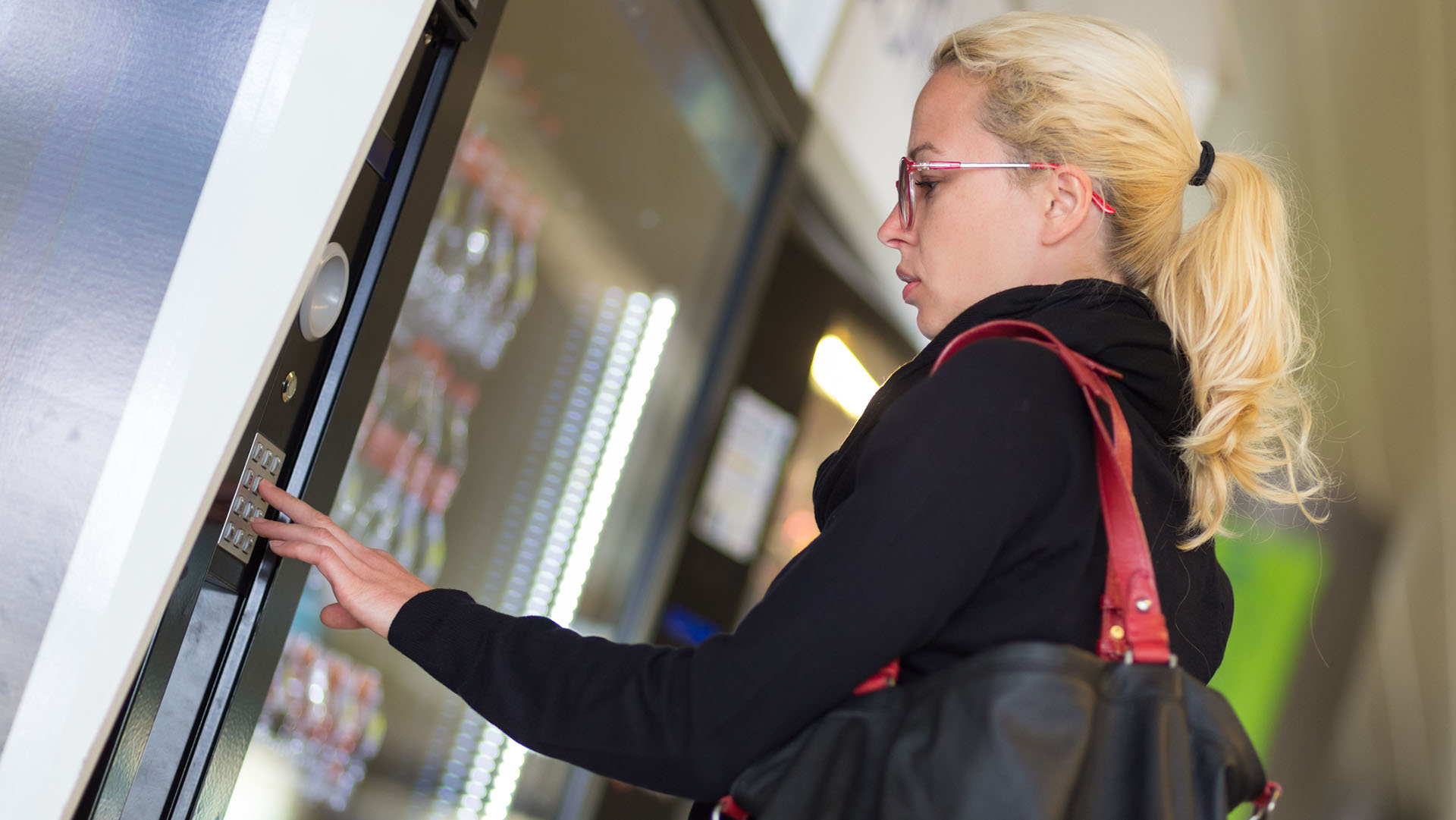Workplace Soda Bans Might Actually Work
Because both sides of the debate over access to sugary drinks can be quite vocal, empirical evidence is especially valuable in setting public policy. So all sides of the issue have their eyes on a new study published in JAMA Internal Medicine, in which researchers examined whether removing sugary drinks for sale at the University of California, San Francisco had any effects on employee health. Its major finding: Six months after enacting the ban on sugary drink sales, workers' consumption of those drinks decreased, as did their average waist circumference.
After the ban, the average employee's daily sugary drink consumption—which included sodas, sweetened teas, energy drinks, etc.—fell to about half its initial level, from 35 ounces to 18 ounces. The reduction among employees who are overweight or obese was even more noteworthy: That population reduced its average daily intake by more than 25 ounces a day, compared to 8 ounces for non-overweight individuals.
Laura Schmidt, a lead author of the study and professor in the school of medicine at UCSF, says the study proves the university's ban is a successful model that should be considered by other institutions.
"Encourage your employer to create a healthier workplace food environment or start a movement yourself to stop sales of sugar-sweetened beverages—this is actually how the sales ban at UCSF started," Schmidt told Reuters, adding that UCSF has a free online toolkit to help people do just that. If you look forward to your late-afternoon appointment with the cafeteria's Coke Freestyle machine, better savor these moments while you can.
